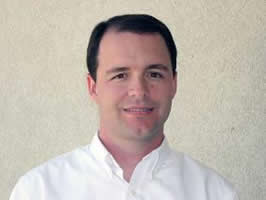
| Campus | Seminole Campus |
| Location | UP 240 |
| Title | Faculty |
| Email | McClintock.Bruce@spcollege.edu |
| Phone | (727) 394-6167 |
BIOGRAPHY
Bruce McClintock earned a Bachelor of Science in Astronomy with a minor in Physics from the University of Florida. His post-graduate work includes a Master of Arts in Mathematics from the University of South Florida, a post-graduate certificate in Community College Executive Leadership from the University of Florida and a PhD in Solar Physics Astronomy from the University of Southern Queensland.
Dr. McClintock joined St. Petersburg College in 2000 as a full-time professor. He has worked as an Academic Chair of Mathematics as well as the Program Director of Mathematics, Science and Business for Seminole campus and eCampus. He has served multiple terms as the Seminole chairperson of the Faculty Governance Organization and in support of the Center of Excellence for Teaching and Learning as a Faculty Associate and later as a board member. He lives near St. Petersburg with his family.
SOLAR SYSTEM WALK AT SEMINOLE CAMPUS
Dr. McClintock designed and implemented the installation of a scale model of the solar system on the Seminole campus. This 1 mile solar system walk includes the 8 major planets and a full scale 2D model of the Sun, believed to be one of the largest complete representations of the Sun in a scale model of the solar system.
https://solarsystemwalk.spcollege.edu/
MY TEACHING PHILOSOPHY
Effective teaching starts with creating the most productive environment for learning. This requires a holistic approach by the professor rather than just an information transfer by way of traditional methods. It is important to recognize that each student has different strengths to employ and obstacles to overcome in pursuit of academic mastery. This has led me to use the following techniques as much as possible to improve student performance.
Universal Design – Students with a documented disability often require accommodations to be successful in class, but other students may have undiagnosed hurdles to clear as well. Designing courses to be accessible and accommodating to a variety of learning styles benefits all students regardless of their official status.
Mastery Testing – Summative tests are proctored in class to maintain academic integrity. To improve note-taking and therefore retention of concepts, students are permitted to use their written notes on tests. To reduce stress and therefore hopefully improve performance, ample time is provided to complete each test. This also addresses the most common accommodation requested by students with a documented disability.
Flipped Classroom – To encourage active learning and a more efficient use of class time, math courses in particular are “flipped”. Instructional activities are assigned to be reviewed at home and "homework" assignments are completed in class. This allows students to learn at their own pace from video and text instruction as needed. Homework is also completed at a much higher rate which leads to better concept comprehension.
Open Educational Resources – To increase the likelihood that students will have access to all required course materials, free or reduced-cost resources are used whenever feasible. The following resource was made available for free at florida.theorangegrove.org and was made as screen-reader compatible as possible.
AST1000: 10 Important Equations in Astronomy
Author: Bruce McClintock
https://florida.theorangegrove.org/og/items/d78ae99a-ff4d-4a0d-a71a-7b3714e886fb/2/
PUBLISHED WORK
Tilt Angle and Footpoint Separation of Small and Large Bipolar Sunspot Regions Observed with HMI
BH McClintock, AA Norton, Astrophysical Journal. 818 (1), 7. 2016
http://iopscience.iop.org/article/10.3847/0004-637X/818/1/7/meta
Re-Examining Sunspot Tilt Angle to Include Anti-Hale Statistics
BH McClintock, AA Norton, J Li, Astrophysical Journal. 797 (2), 130. 2014
http://arxiv.org/abs/1412.5094
Recovering Joy’s Law as a Function of Solar Cycle, Hemisphere, and Longitude
BH McClintock, AA Norton, Solar Physics. 287, 215–227. 2013
http://arxiv.org/abs/1305.3205
Joy’s Law, Anti-Hale classifications, and the evolution of emerging sunspot regions
BH McClintock
University of Southern Queensland 2016
A Search for Coriolis Forces Acting on Tilt in Bipolar Active Regions
BH McClintock
AGU Fall Meeting Abstracts 2013
North-South Asymmetries: the Solar Dynamo and Hemispheric Coupling
AA Norton, JT Hoeksema, K Hayashi, Y Liu, X Sun, BH McClintock, ...
AGU Fall Meeting Abstracts 2013
Recovering Joy's Law, Tilt Angle as a Function of Longitude, and Tilt Angle Change during Emergence
BH McClintock, AA Norton
SDO-3: Solar Dynamics and Magnetism from the Interior to the Atmosphere 2011
COURSES TAUGHT/TEACHING
Astronomy: Introduction to Astronomy, The Solar System, Astronomy Lab
Applied Math: Applied Calculus, Liberal Arts Math I and II, Statistics
Algebra track: Pre-Algebra to College Algebra
Calculus track: Pre-Calculus Algebra and Trigonometry to Calculus III
A NOTE TO ON-CAMPUS STUDENTS
I use a flipped classroom approach in my on-campus math classes which means I do not schedule regular in-class lectures. Most students are more comfortable with this format, especially if they are highly motivated students. It has led to an improvement in overall success rates for each class as well. However, students who feel they can only learn from regular in-class lectures should consider a different professor.